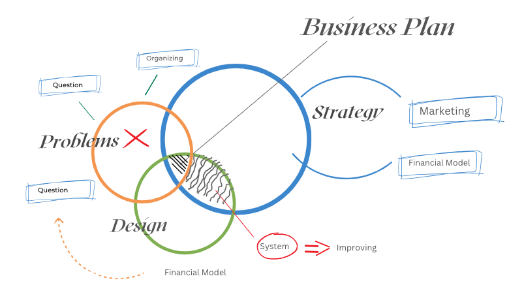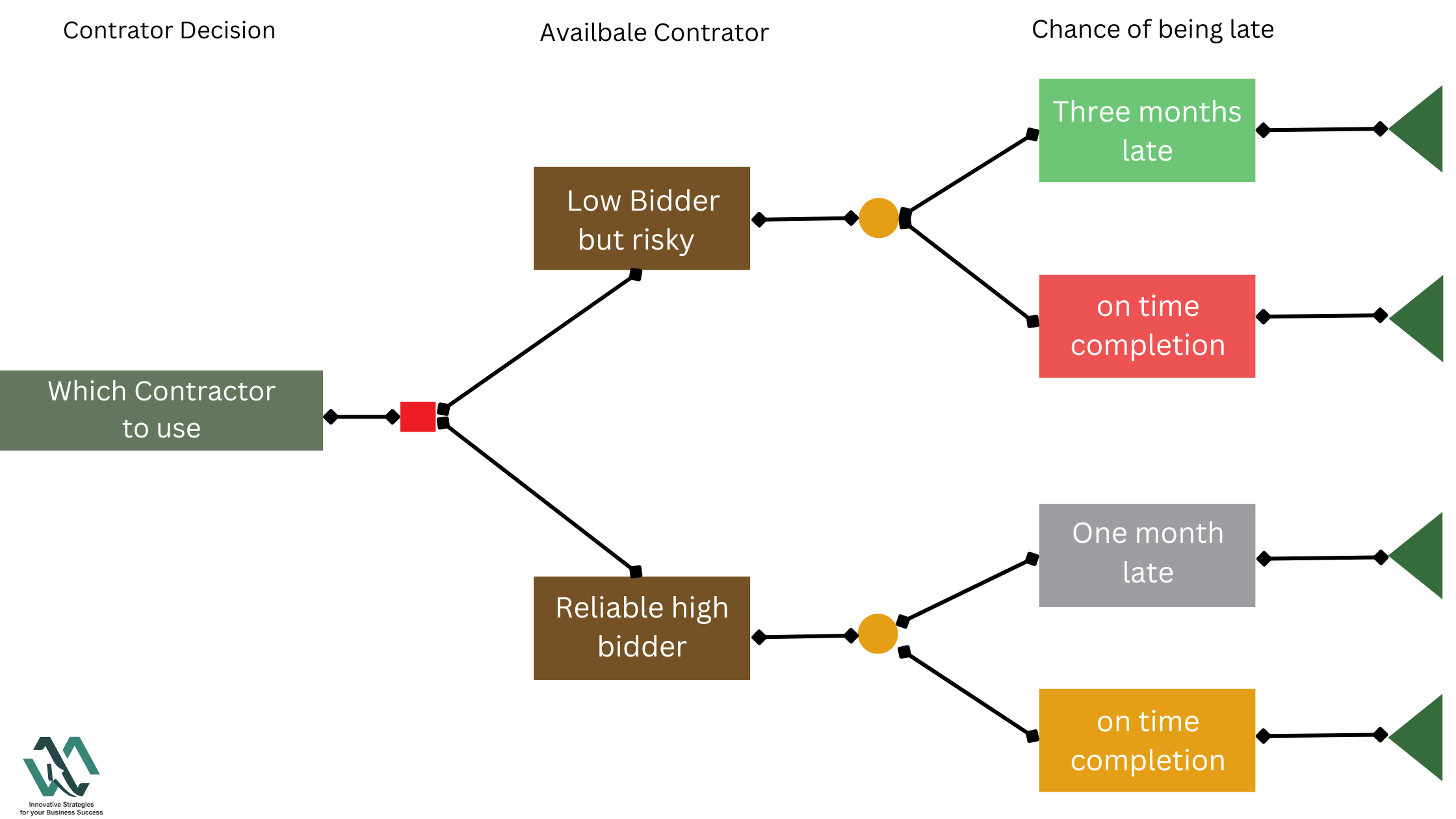15 Reasons Why You Need a Business Plan
It is, without a doubt, difficult to start and run a business. However, it is also gratifying. In addition, having a business plan is one of the most important things you can do to increase your chances of success.
It is essential for every company, regardless of its size or age, to have a business plan. A business plan can help you achieve significant milestones and grow your company in the right direction, from attracting potential investors to keeping it on track.
When starting a business, a business plan is more than a document you put together once. Business owners should revisit and update this guide regularly as it is a living, breathing guide for existing businesses.
For potential entrepreneurs, writing a business plan can be a daunting task. Do you need a business plan? Does it warrant the investment of time and resources? Would it not be possible just to wing it and skip the entire planning process?
These are good questions. The following are all the reasons why you need a business plan.
1.Planning your business will help you grow 30 percent more quickly
The purpose of writing a business plan is not to produce a document that accurately predicts the future of your organization. What is important is the process of writing your plan. To achieve your goals and succeed, write your plan and review it regularly.
You do not have to take our word for it. Research has shown that companies that plan and review their results regularly grow 30 percent faster. Aside from faster growth, research also indicates that companies that plan perform better. As a result, they are less likely to become part of those woeful failure statistics or to suffer from cash flow problems that threaten to force them out of business.
2.Fundraising requires planning
A business plan is one of the most important tools for raising capital for a business. It is difficult to determine how much capital you will need to raise, how you will spend the money once you have raised it, and what your budget should be without a business plan.
You should make sure that you have a solid plan in place – that your business is headed in the right direction and that there is long-term potential for your company.
An effective business plan indicates that your business is serious and that you have clearly defined steps to achieve success. As well as demonstrating your ability to achieve that vision, it also demonstrates your competence.
Your investors, partners, and creditors will want to see detailed financial projections for your business that indicate how you plan to grow and how you intend to spend their money.
When presenting a business plan to investors or partners, showing how and when the company will become profitable is key. Include your five-year business plan in your presentation, whether it’s part of something bigger or stands alone. However some cases, they also show a one-year plan with strategies for achieving the goals and mitigating risks.
3.It minimizes your risk to have a business plan
Just starting out, there is so much you do not know–about your customers, your competition, and your operations.
Starting a business entails some uncertainty, but there are a number of things you can do to reduce your risk. Creating and reviewing your business plan regularly will help you identify your weak spots flaws, gaps, and assumptions you’ve made- and develop contingency plans to address them.
As part of your business plan, you will also be able to define budgets and revenue targets. In addition, if you do not meet your goals, you can quickly adjust your spending plans and create more realistic budgets to maintain the health of your business.
4.Develop a roadmap for achieving important milestones
It is similar to a roadmap for your business to develop a business plan. Setting, tracking, and achieving business milestones is made easier with it.
In order for your business plan to function in this manner, it should first outline the short- and long-term goals of your company. The specific steps necessary to accomplish those goals can then be filled in. In this manner, you will be able to measure your progress (or lack thereof) and make necessary adjustments along the way so that you remain on course while avoiding costly detours.
Bad business planning is one of the main reasons why new businesses fail. This is a recipe for disaster when combined with inflexibility.
Planning is not just for startups. It is highly beneficial for established businesses to review their business plans. In recent years, we have seen a rapid shift in the global market, which keeps them on track.
5.You can determine if your idea can be turned into a business by creating a Plan
In order to turn your idea into a reality, you must accurately assess its feasibility.
Verify the following:
It is important to determine whether there is a market for your product or service
Your target audience
What you will do to gain an advantage over your competitors
In the event that your business is profitable
A business plan forces you to take a step back and analyze your company objectively, which makes it much easier to make tough decisions in the future. Additionally, a business plan provides you with the opportunity to identify risks and opportunities early on, allowing you to develop effective strategies to deal with them.
Lastly, a business plan helps you determine how your business will operate financially and if it is sustainable in the long term.
6.You will have the confidence to make large expenditures
When your business grows, you’ll need to decide when to hire new employees, when to expand to a new location, or whether you can afford a major investment.
You will have better information to make these decisions if you regularly review the forecasts you included in your business plan.
7.Cash flow challenges are more likely to be identified at an early stage
Understanding and monitoring your business’s cash flow is another important aspect of those major spending decisions. As part of your business plan, you will prepare a cash flow statement. (The balance sheet and the profit and loss statement (P&L) are the other two.
If you review your cash flow statement regularly as part of your regular business plan review, you will be able to identify potential cash flow issues earlier so you can take action to prevent a cash crisis.
8.Determine your brand’s competitive position
When starting a business, you should consider your competitors. It is fortunate that competitive research is an integral part of the process of writing a business plan. You are encouraged to ask questions such as:
What are the strengths of your competitors? Is there anything they are doing poorly?
How can you distinguish yourself from the competition?
Is there anything you can learn from them?
What can you do to make your business stand out from the competition?
Can you outcompete your competitors in any of these key business areas?
What is the best way to identify your target market?
By answering these questions, you can establish a strategic market position and identify ways to differentiate yourself from your competitors. As a result, it proves to potential investors that you have done your research and have an understanding of how the market works.
9.Develop a revenue model and determine the financial needs
The first step in starting a business is to determine what your expenses will be and how you will generate revenue to cover them. You can accomplish this by creating a business plan, along with defining your ongoing financial requirements.
Without a business model, it is difficult to determine whether your business idea will generate revenue. Your business’ viability and scalability can be evaluated effectively by detailing how you intend to make money.
It is important to understand this early on in order to avoid unnecessary risks and begin with the confidence that your business will be successful.
10.Provides you with the opportunity to think through your marketing strategy
It is a good idea to document your marketing plan in a business plan. As a result, all of your marketing activities will be aligned with your overall objectives. There is no way for a business to grow without customers, so you will need a strategy for acquiring them.
A business plan should include information about your target market, your marketing strategy, and your marketing budget. Explain how you intend to attract and retain customers, acquire new leads, and how the digital marketing funnel will operate.
Having a documented marketing plan will allow you to automate business operations, stay on track, and ensure that your marketing budget is being utilized effectively.
11.Ensures everyone is on the same page with your vision
A successful business requires a clear vision and a plan for achieving it. All of this is outlined in your mission statement, which defines the purpose of your company, and in your personnel plan, which outlines the roles and responsibilities of your current and future employees. In addition to establishing the long-term vision you have in mind, they identify who will need to be involved in order to achieve that vision.
Furthermore, your business plan is a valuable tool for bringing your team together. By reviewing your plan on a regular basis, you may be able to get everyone on the same page and direct your workforce toward tasks that will actually lead to results.
12.Ensure that your business is future-proof
The purpose of a business plan is to help you assess your current situation and make realistic projections for the future.
In order to grow your business, this is an essential step that is often overlooked. It is easier to identify opportunities and make informed decisions when you have a business plan in place.
You are therefore required to outline goals, strategies, and tactics in order to help the organization stay focused on what is important.
When you regularly review your business plan, especially when the global market changes, you will be better prepared to handle any challenges that may arise and to pivot as quickly as possible.
As a result, you will be in a better position to take advantage of opportunities as they arise.
13.Measures your progress and success
A business plan serves the important purpose of defining success metrics, which is often overlooked. The preparation of a viable financial plan is an important part of writing your plan. Financial statements such as your profit and loss statement, cash flow statement, balance sheet, and sales forecast are included in this section.
As a result of incorporating these financial metrics into your business plan, you will be able to easily correlate your strategy with actual performance. You can track progress, measure results, and keep track of the company’s progress. It is almost impossible to gauge your progress without a plan.
Additionally, by evaluating your successes and failures, you will be able to identify what works and what does not and make necessary adjustments to your plan as a result. In summary, a business plan provides a framework for measuring your success. Furthermore, it helps build up a knowledge database of “lessons learned” to avoid costly mistakes in the future.
14.If you intend to sell your business in the future, your business plan is an asset
In the future, you may decide to sell your business or position yourself for acquisition. You will be able to make the case for a higher valuation if you have a solid business plan. An investor is more likely to be interested in your business if it is easy for them to understand your business model, your target market, and your overall growth potential.
15.Promotes continuous improvement
Continuous improvement starts with a business plan. The regular reassessment and fine-tuning of your plan ensures your enterprise has enduring endurance and prosperity by encouraging adaptability, strategy refinement, and the implementation of acquired wisdom
Developing a Business Plan
The creation of a business plan ensures that your business is headed in the right direction and that you have a roadmap for how to get there. It is our hope that this post has demonstrated the importance and value of a business plan. Although writing one may seem daunting, the benefits far outweigh the time and learning curve involved.
It is possible to write a plan in as little as 30 minutes. If you require more detailed guidance, there are many excellent planning tools available. Regardless of what it takes, create your plan and you will soon discover how useful it can be.
Please download your brochure for your business plan below – Myinvestorchoice is ranked the number 1 Agency on Upwork for preparing business plans

 Our Samples
Our Samples  Support
Support 










fitspresso weight loss reviews
March 17, 2024Your words have a way of resonating deeply with your readers Thank you for always being encouraging and uplifting